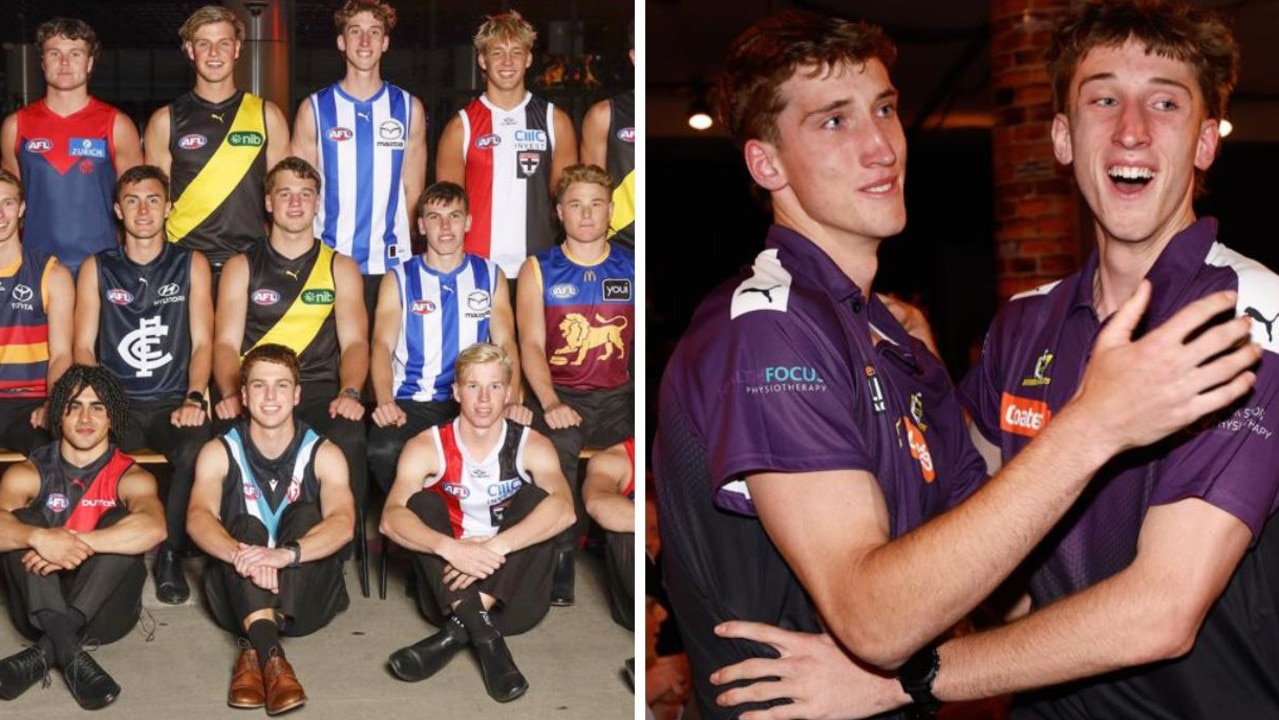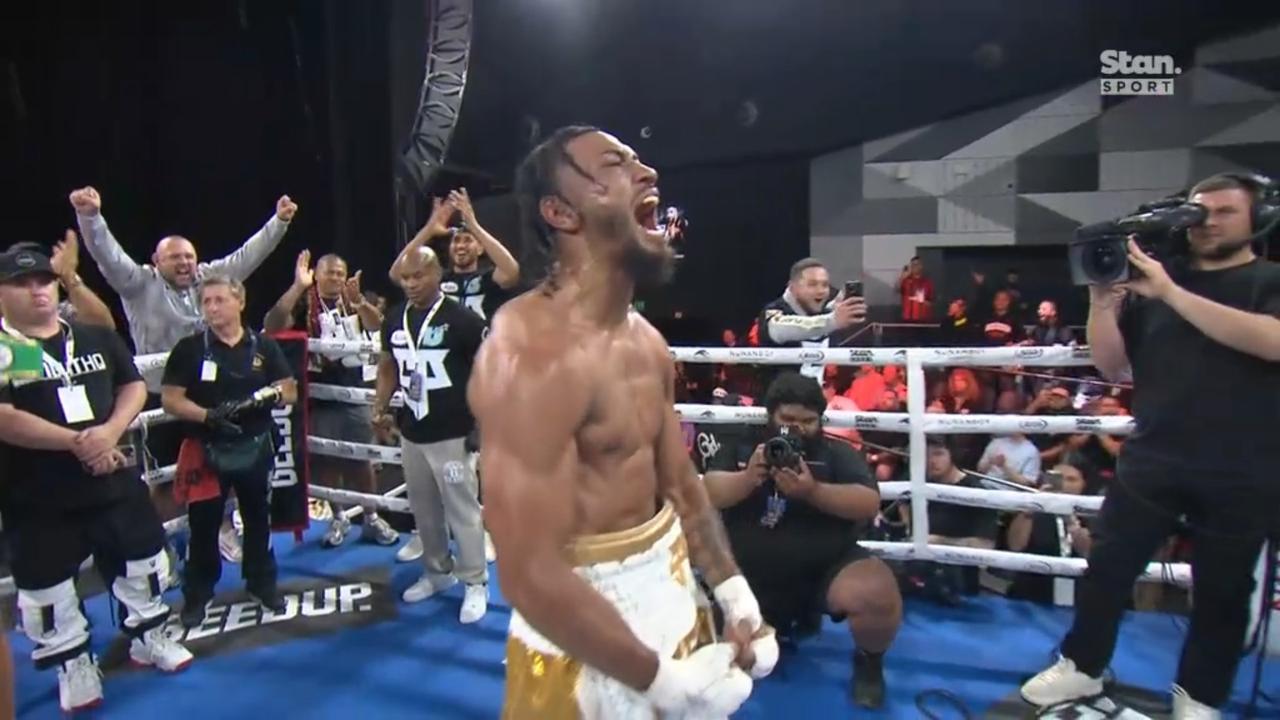‘Taking a pumelling’: Pat Cummins helping ‘dad brand’ shake up $218bn sporting empire
A dorky “dad brand” is shaking up the global sporting market, with the Australian cricket team among a host of stars upending the status quo.
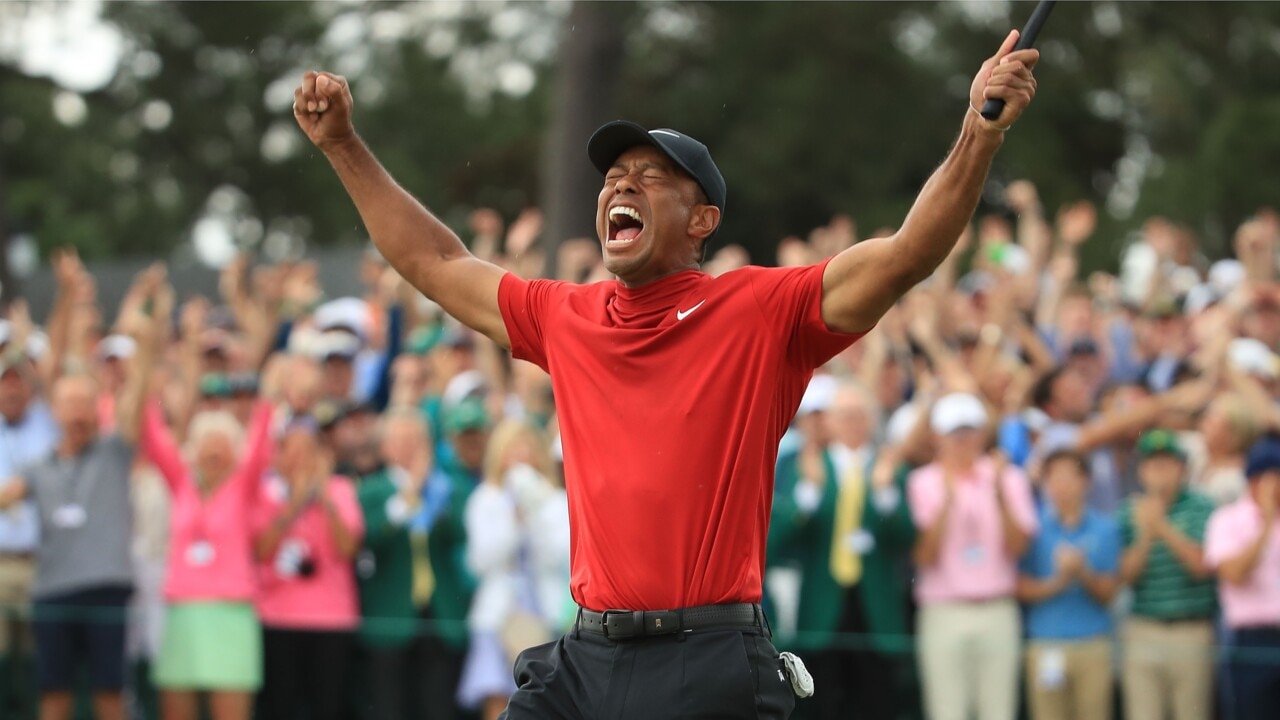
Kayo
Don't miss out on the headlines from Kayo. Followed categories will be added to My News.
For decades Nike has dominated world sport, becoming synonymous with the world’s top athletes.
From Michael Jordan to Roger Federer, Tiger Woods, Rafael Nadal, LeBron James and Serena Williams — the swoosh has become synonymous with the best of the best professional athletes.
But there’s a new kid on the block trying its best to shake up the global sporting empire — New Balance.
Nike’s decision to end their long-term partnerships with Roger Federer and Tiger Woods surprised many sports fans given they are two generational sporting icons with claims to being the greatest of all time in tennis and golf.
But it’s symptomatic of a global sports sponsorship landscape that has become more diverse and competitive than ever.
While it remains a juggernaut, other rivals are coming hard to knock Nike off its perch from the top of the sporting and lifestyle fashion empires.
Watch selected NRL & AFL games, along with every F1 race live in 4K on Kayo. New to Kayo? Start Your Free Trial today
Nike certainly remains the dominant sponsor in world sport, particularly in America. The iconic swoosh can be seen on every NBA, NFL and MLB jersey.
Both Australian Open tennis winners, Aryna Sabalenka and Jannik Sinner, wore Nike outfits when they triumphed at Melbourne Park in January.

And despite parting ways with Woods, Nike still have a strong presence in golf, sponsoring World No. 1 Scottie Scheffler, Rory McIlroy and Brooks Koepka.
Nike recently signed a 10-year deal with Football Australia to sponsor the Matildas and Socceroos, and are the jersey sponsor of Collingwood and the Sydney Swans in the AFL.
Matildas duo Sam Kerr and Ellie Carpenter, swimmer Ariarne Titmus, Diamonds captain Liz Watson, AFL young gun Nick Daicos and cricketers Marnus Labuschagne and Nathan Lyon are some of Australia’s most high profile sports stars sponsored by Nike.
But even in the professional sports sponsorship market, Nike is fighting off competitors from every angle.
Gen Z sporting power couple Mary Fowler and Nathan Cleary are a marketer’s dream for Adidas, while canoeist Jessica Fox and cricketer Cameron Green are ‘Red Bull athletes’.
Rising Aussie golf star Min Woo Lee recently signed a deal with activewear brand Lululemon.
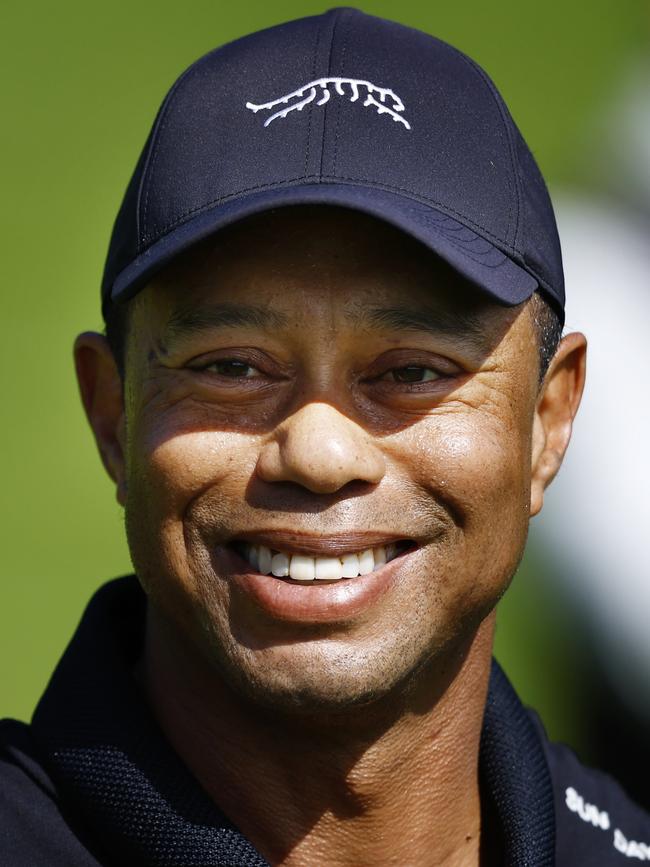

Aussie cricket team leading New Balance growth
If you’ve watched the Australian cricket team play a game lately, take a close look at what shoes the players are wearing.
There is still a sprinkling of Asics and Nike spikes around, but nearly half the Australian team including captain Pat Cummins are now wearing New Balance on their feet.
Cummins and Steve Smith and white ball specialist Matthew Wade are sponsored by New Balance, while Mitch Marsh, Nathan Ellis and Scott Boland also choose to wear New Balance cricket shoes.
There’s no greater endorsement for the brand’s sporting quality than Cummins — who was forced into the cricket wilderness with heel injuries and stress fractures after his Test debut — wearing New Balance as he sprints up to bowl at 140km/h.
New Balance signed Cummins when he made his Test debut in 2011 and stuck by him during years of injuries before he returned to Australia’s ODI team in 2015 and the Test team in 2017.
“My first main one (sponsor), which I’m still with today is New Balance,” Cummins told the Business of Sport podcast last year.
“I signed with them when I was just turned 18. It felt awesome. Back then it was a bit of a dad brand, and now it’s quite a cool brand.
“The most important thing for me was the best shoe. As a bowler, I spent a lot of time injured and I just really care about my feet because obviously if they’re no good, you can’t bowl.”
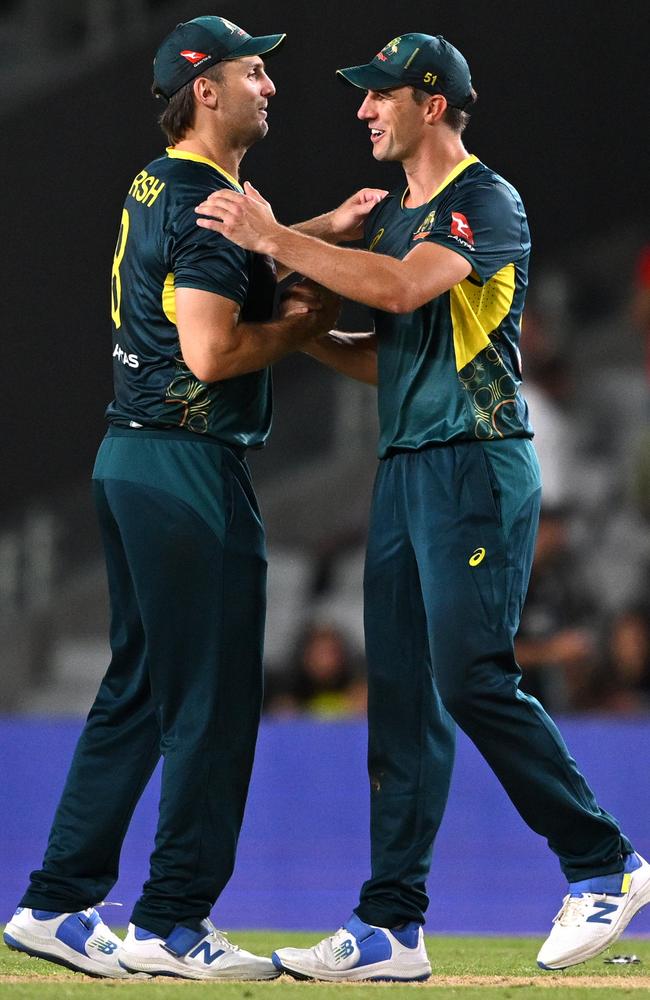
“We supported him,” New Balance Australia’s Cricket Business Manager Gary Crowfoot told news.com.au of Cummins’ years in the injury wilderness.
“It wasn’t ideal when he became injured for nearly three years. What he went through with his body and stress fractures and having to reinvent his action.
“You still sometimes worry about it because he’s been durable all the way through.”
It was a sponsor’s dream when Smith turned into Bradman in the mid-2010s and raised his NB emblazoned bat countless times on his return to the Test side in the 2019 Ashes.
New Balance’s mantra is about “forging a new culture in the sporting space” and the brand has been boosted through its “long term partnership with Pat Cummins”.
Crowfoot said signing Cummins, Smith and former South African bowler Dale Steyn was “massively important” to giving New Balance credibility after it started to manufacture cricket equipment and shoes space around 2010.
“The timing was perfect as Steve started this extraordinary Bradman-like form over the Test summer and into Australia winning the 50-over World Cup on home soil,” he said.
Crowfoot wouldn’t reveal the details of Cummins’ New Balance deal but said his contract was “reasonable”.
New Balance’s ‘regional power play’ in India
England’s Joe Root is also sponsored by New Balance, who are targeting India as the next frontier for their cricket merchandise.
“Watch this space,” Crowfoot said.
“In India that’s going to be the real challenge, who we get. We’re targeting one of the top three bowlers in the Indian cricket team, potentially an all-rounder.
“Our strategy is to take our time, then when we’re ready to go with a player we feel is going to be a bit like an Ohtani (Japanese baseball superstar Shohei Ohtani).
“We want to get the best two bowlers in India. We may only get one of them. We’re looking at a young player who’s playing for Dehli (Capitals) and we’ve got an offer on the table for him.”
With the IPL season in full swing and five Tests against Australia next summer, making it big in Indian cricket is the next goal for New Balance’s cricket arm.
“Gray Nicholls and Kookaburra are always going to be in the business in Australia,” Crowfoot said.
“For us, it’s a regional power play. We understand where we sit. Cricket’s not seen as a global sport like tennis or soccer.
“There’s only one country where it’s growing, and it’s got 1.4 billion people.”
New Balance is in the business of selling its cricket shoes and as part of its “field of play strategy”, sponsoring players who play three formats for Australia.
“Pat and Steve are a really good example,” Crowfoot said.
“Part of our portfolio is to have a three-format player. Generally when you get a three-format player, you’re paying a lot more money. To sign a player we want to make sure we’ve got two out of three formats. We don’t care if it’s two white ball formats.”
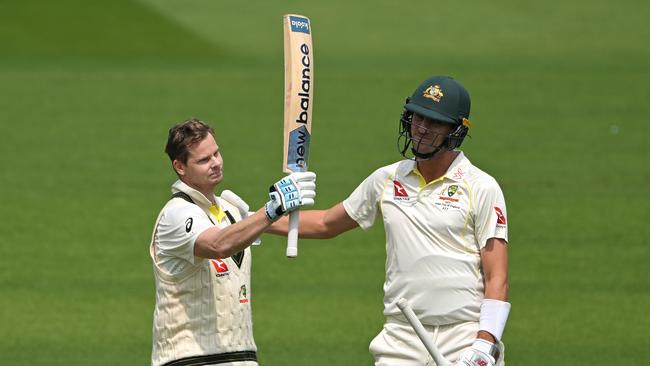
New Balance have a habit of backing the right horse — signing an athlete with a clean cut image just before they make the leap to superstardom.
Glenn Phillips, one of the few Kiwi players who played well against Australia in the recent series in New Zealand, is a New Balance athlete.
They’ve signed West Australian paceman Lance Morris and NSW batter Ollie Davies, who just enjoyed a breakout season in the Sheffield Shield. You could safely put money on that duo playing Test cricket for Australia within the next few years.
“We don’t sign a cricket footwear contract unless they’ve tried our shoes and comfortable in them,” said Crowfoot.
“Pat tests and wears our shoes and gives input on them.
“Bowling boots are really difficult. You’ve got seven to 10 times your body weight hitting the ground. Our performance and durability. We don’t get a lot of breakage.”
The “responsive midsoles” and “technology and durability” have made New Balance bowling shoes and spikes increasingly popular among professional cricket players.
It’s not just cricket where New Balance is making waves — the company has grown its stable of athletes across the world to include some seriously big names.
Coco Gauff, 20, is the next big thing in women’s tennis and sported the NB logo when she won last year’s US Open.
American hurdling Olympic champion Sydney McLaughlin is another global superstar repped by the brand.
Japanese baseball superstar Shohei Ohtani, who signed a massive 10-year, $700 million with the LA Dodgers, recently joined New Balance and fronted their latest ad campaign.
NBA champions Kawhi Leonard and Jamal Murray are also sponsored by New Balance, while singers Jack Harlow and Tash Sultana are some of the brand’s non-sporting “tastemakers”.

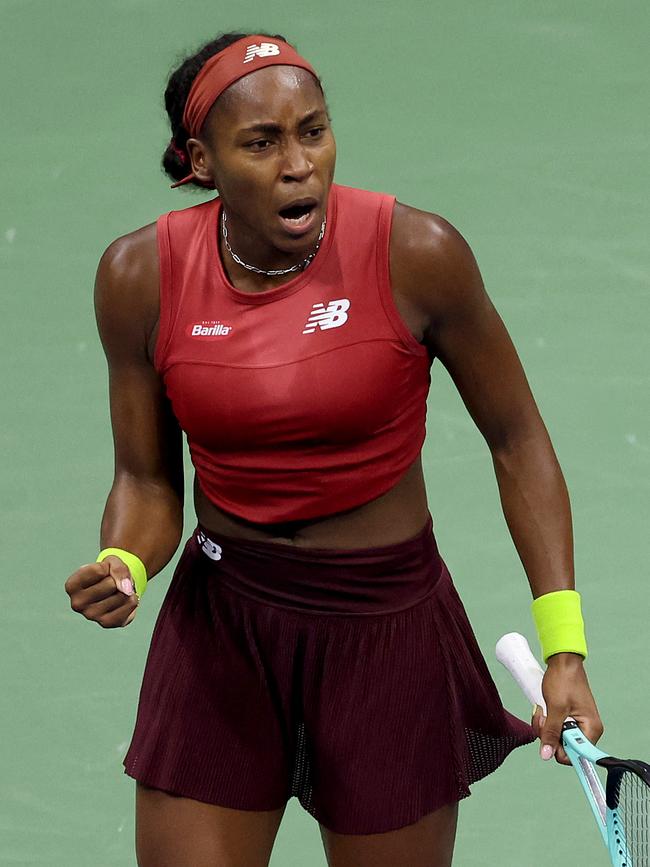
Dorky ‘dad’ brand taking sporting, fashion world by storm
If you go for a walk down a busy street in any Australian city, you’ll very likely see countless people wearing New Balance sneakers.
New Balance used to be butt of jokes — a chunky white shoe worn by dorky dads and PE teachers that young people wouldn’t be caught dead in.
But now New Balance 550s and 530s are as cool as it gets, turning the brand’s sneakers into a hot fashion commodity.
“New Balance is on fire,” Simon Wood, editor of footwear bible Sneaker Freaker, told news.com.au.
“They’re killing it with the dad shoe thing and they’ve reinvigorated the brand with a whole lot of new models that have opened up new dimensions for them.
“Strangely they keep the 50-year-old dad and the 20-year-old cool kid both happy. They’re covering a lot of different things and to some extent they’ve outplayed Nike at what Nike’s been so good for so long.
“The retro market has worked for a long time and Nike’s had shoes like the Air Force One and the Jordan One just be endless juggernauts of sales. And like all good things, they must come to an end at some point.
“Fashion is brutal, it’s cyclical and there are some shoes that just look a bit tired at the moment. The Dunk is still pumping at the moment but we need that feeling of newness.”

Nike ‘taking a pummelling’
According to Brand Finance Australia’s Managing Director Mark Crowe, it made sense as a business decision for Nike to end the partnerships Woods and Federer.
“Nike would have taken the view in terms of both Tigers Woods and Federer, they’ve probably maximised the equity in those two sportsmen,” Crowe told news.com.au.
Woods recently launched his own golf apparel range called Sun Day Red in collaboration with TaylorMade, while Federer is midway through a 10-year A$460 million deal with Japanese retailer Uniqlo.
Nike is still the dominant player in sporting brands around the world, but the competition for sponsorships and sneaker sales has never been more fierce.
“The whole sporting brand market globally is extremely competitive. You’ve got a number of new entrants.
Nike will always have a strong share of the sneaker and running market thanks to the enduring popularity of the all white Air Force One and the Nike Dunk shoe.
But labels like New Balance, Salomon, Hoka and Swiss sneaker brand ON Running (backed by Federer) are becoming increasingly popular among trendy sneaker heads and hardcore runners lighting up their Strava account on their way to their next half marathon.
If the New Balance 550 was the sneaker of 2022, the Adidas Samba took that crown in 2023.
According to Wood, Nike is under siege from rival brands that are starting to take a slice of the sneaker and running shoe pie.
“All the brands are duking it out,” Wood told news.com.au.
“I think Nike’s taking a bit of a pummelling in the proper running shoe market. I’ve heard this so many times in stores that they’re shoes are probably not as well engineered.”

Secret behind New Balance’s rise
Privately owned by the Davis family with headquarters in Boston, New Balance is a rarity for a business of its size.
It reported a 23 per cent increase in sales in 2023 with a total revenue of $US5.3 billion that is expected to increase in future years.
“The fact it’s a family run company says a lot about the decisions they make,” Wood said.
“They don’t have to answer to shareholders. They are a maverick company. They are quite conservative yet they’ll make wild decisions that no one else would make.
“They’ve had 20 to 30 per cent growth for the past few years. Everything we’ve seen says they totally get it right.
“They’ve got some high level performance running shoes that are excellent and they’ve also got some of the best lifestyle shoes. The 550 was a phenomenon. It really took the crown off the Air Force One (a similar chunky basketball shoe) and it just gave the brand a whole new look.
“They use the best materials They still make shoes in the US and UK, so they do a lot of things no one else does.
“They sell a lot of shoes at a higher price point, they don’t play the discount game like so many other brands.”

Nike still ‘dominant’ force in sport apparel
It’s worth noting Nike is still the dominant player in the sport apparel landscape, with a current market capitalisation of A$218 billion.
“In terms of sport apparel, Nike is far and away No. 1,” Crowe said.
“In a sense, it transcends just sport.”
According to Brand Finance Australia, Nike’s brand value is A$44 billion, light years ahead of its nearest sporting competitor Adidas ($21 billion), Lululemon ($9 billion) and Puma ($8 billion).
“It was the No. 1 apparel brand in the world last year. It’s now the No. 2 apparel brand this year behind Louis Vuitton,” Crowe said.
“In terms of sport apparel, Nike is far and away No. 1. Even among the top sporting brands, Nike is far and away the most valuable.”
Under Armour and New Balance are next, with the latter entering Brand Finance’s top 50 metric for companies with the most brand value worldwide.
While Nike remains a sporting and fashion juggernaut, experts said its brand value and popularity had plateaued in recent times.
“One thing about Nike is its brand value in many respects has stagnated over the last six to seven years,” Crowe said.
“There’s a few factors at play there. One is obviously increased competition. Younger people these days aren’t as loyal to a particular brand. That’s certainly a challenge for any dominant player.
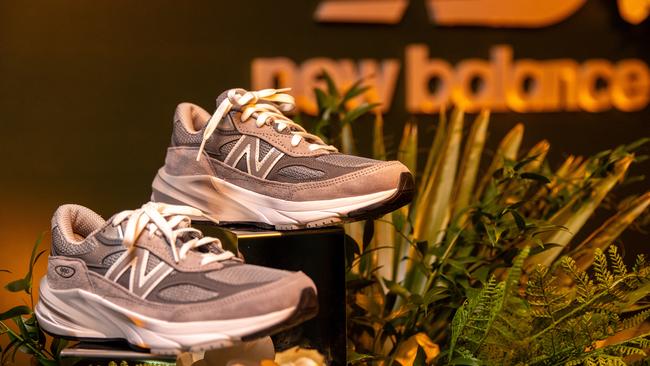
“Nike is far and away the biggest sporting brand in the world. So it would take a lot to reel that in.
“Given the investment Nike’s making, their diversification as both a sport and lifestyle brand, they’re in a very strong position.
“But their brand value has certainly slowed down in terms of growth over the last six or seven years.”
Wood added: “They’re just so dominant and have so many different models whether it’s Air Max, Jordan, they can keep recycling these models endlessly. But right now, I think they have lost their mojo a little bit.
“Nike’s a $50 billion company so their biggest enemy is complacency. Everyone’s looking at Nike to stumble, but it’s been 30 years since the Reebook pump came out that anyone was able to knock them off their perch.”
Originally published as ‘Taking a pumelling’: Pat Cummins helping ‘dad brand’ shake up $218bn sporting empire




